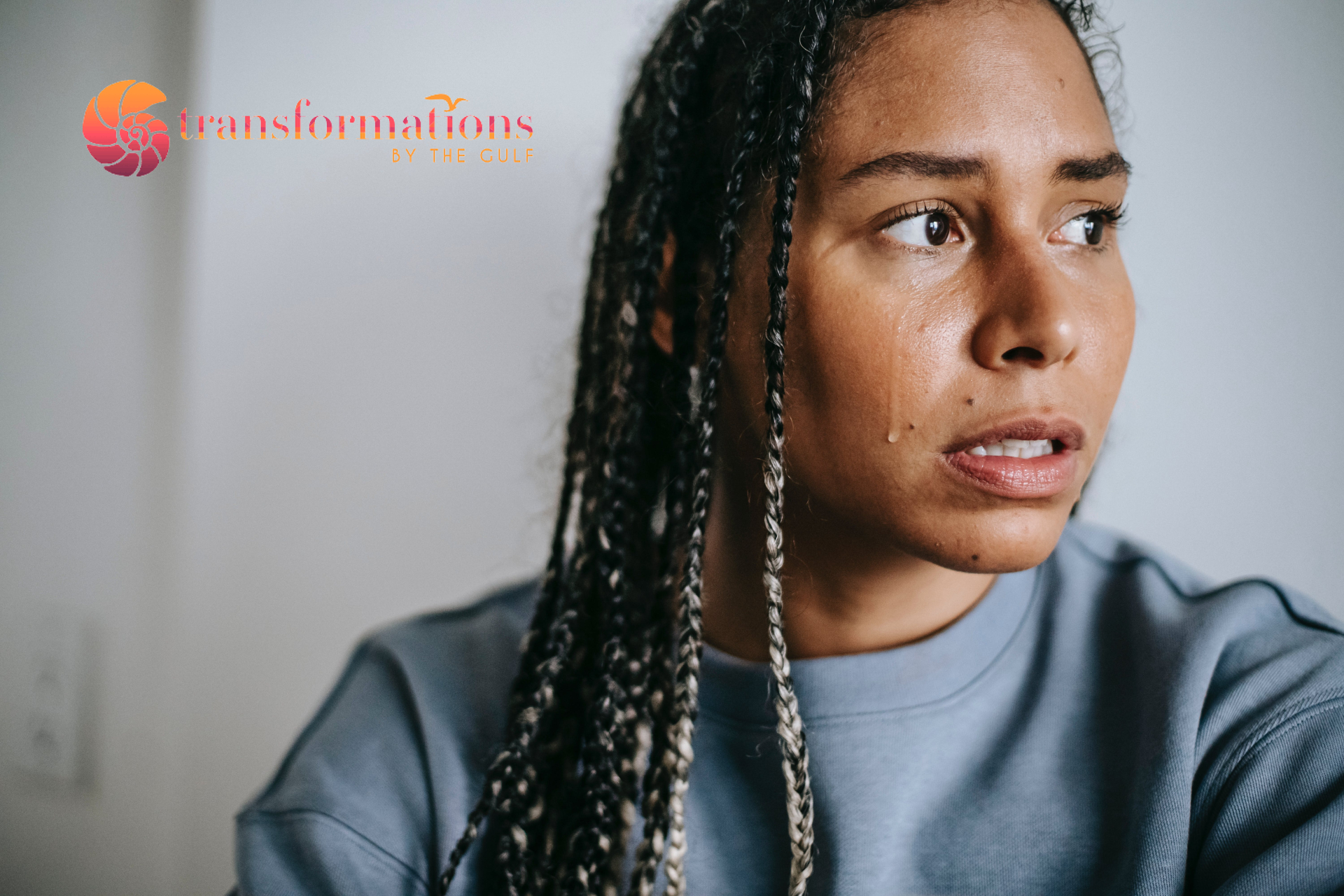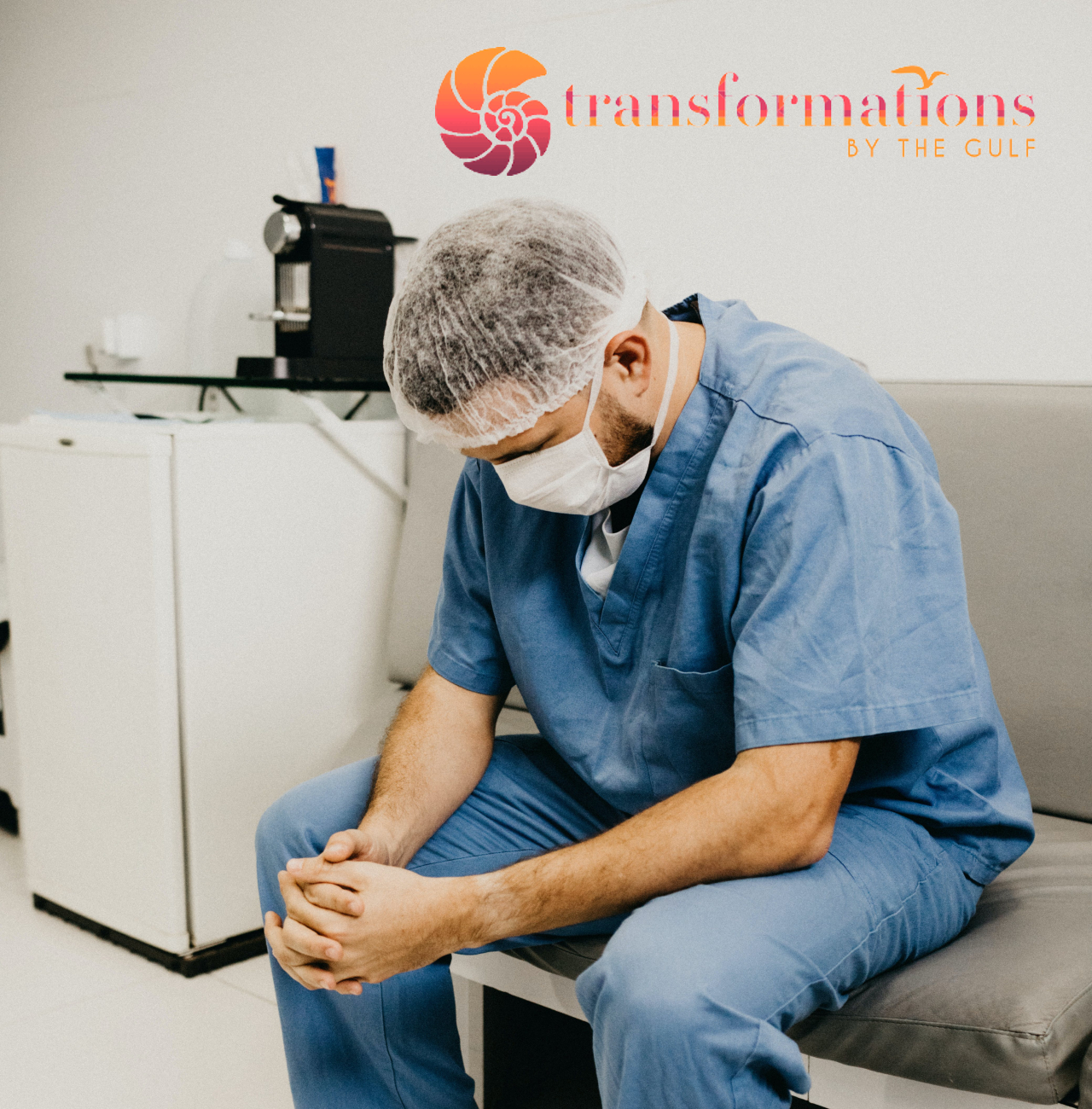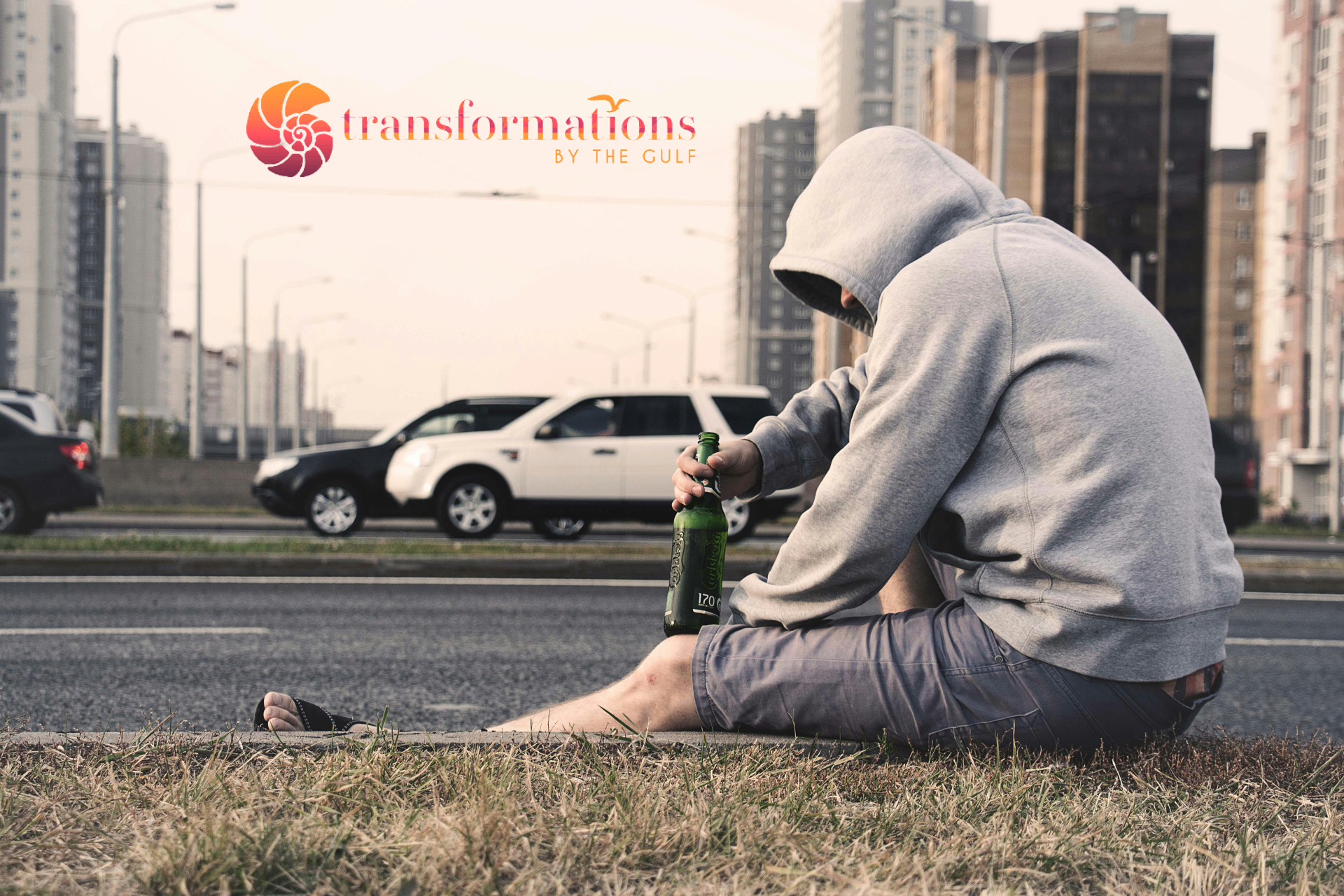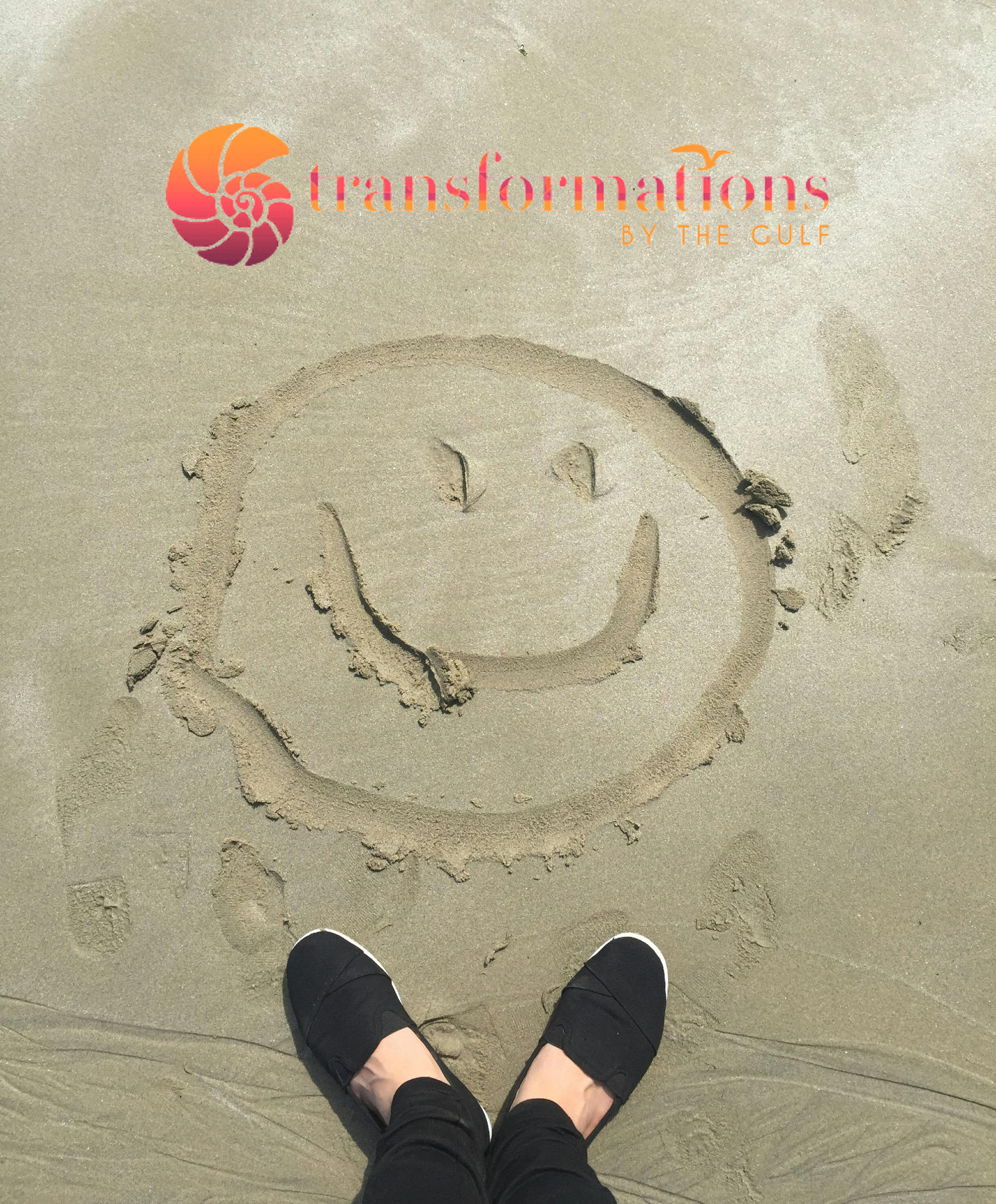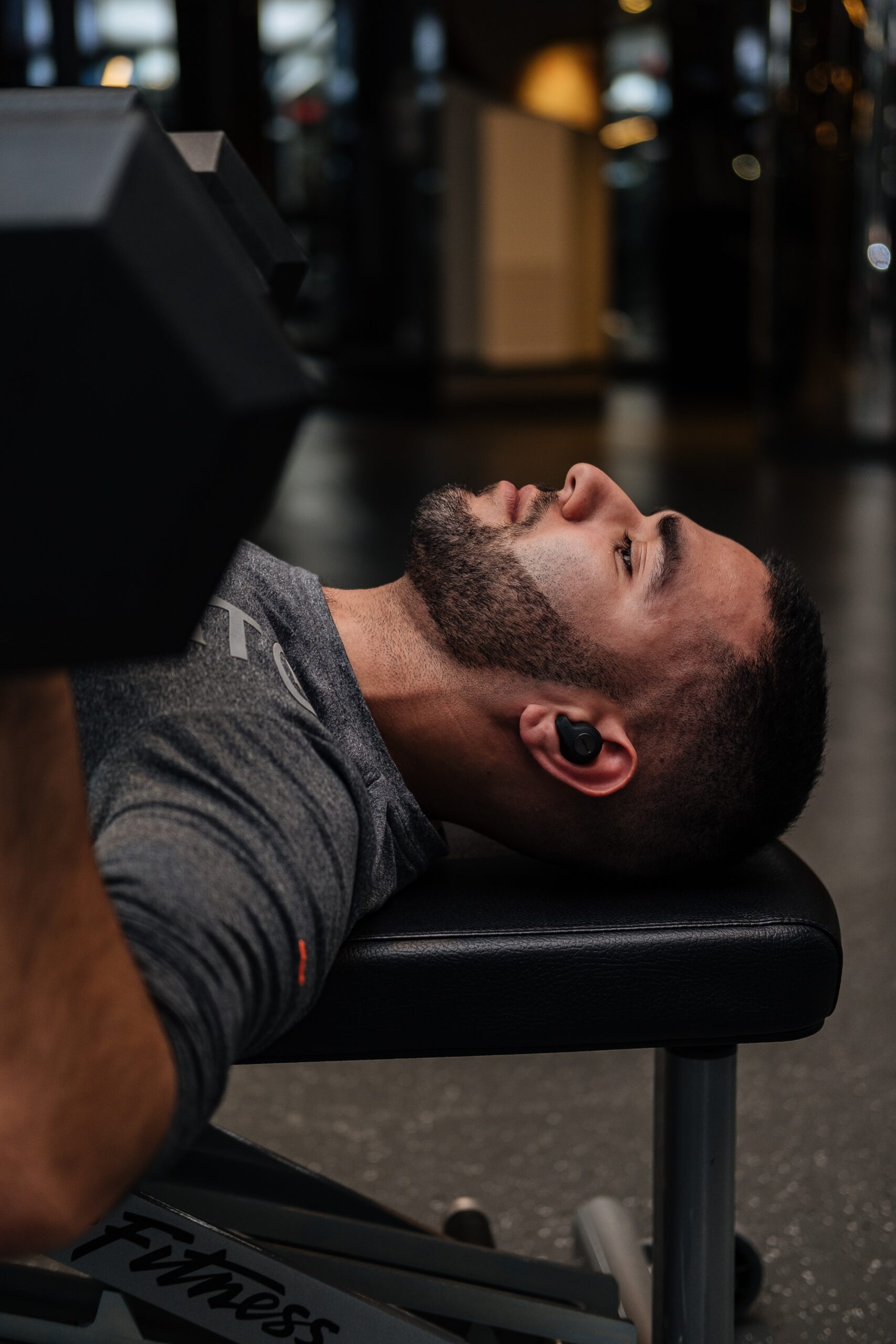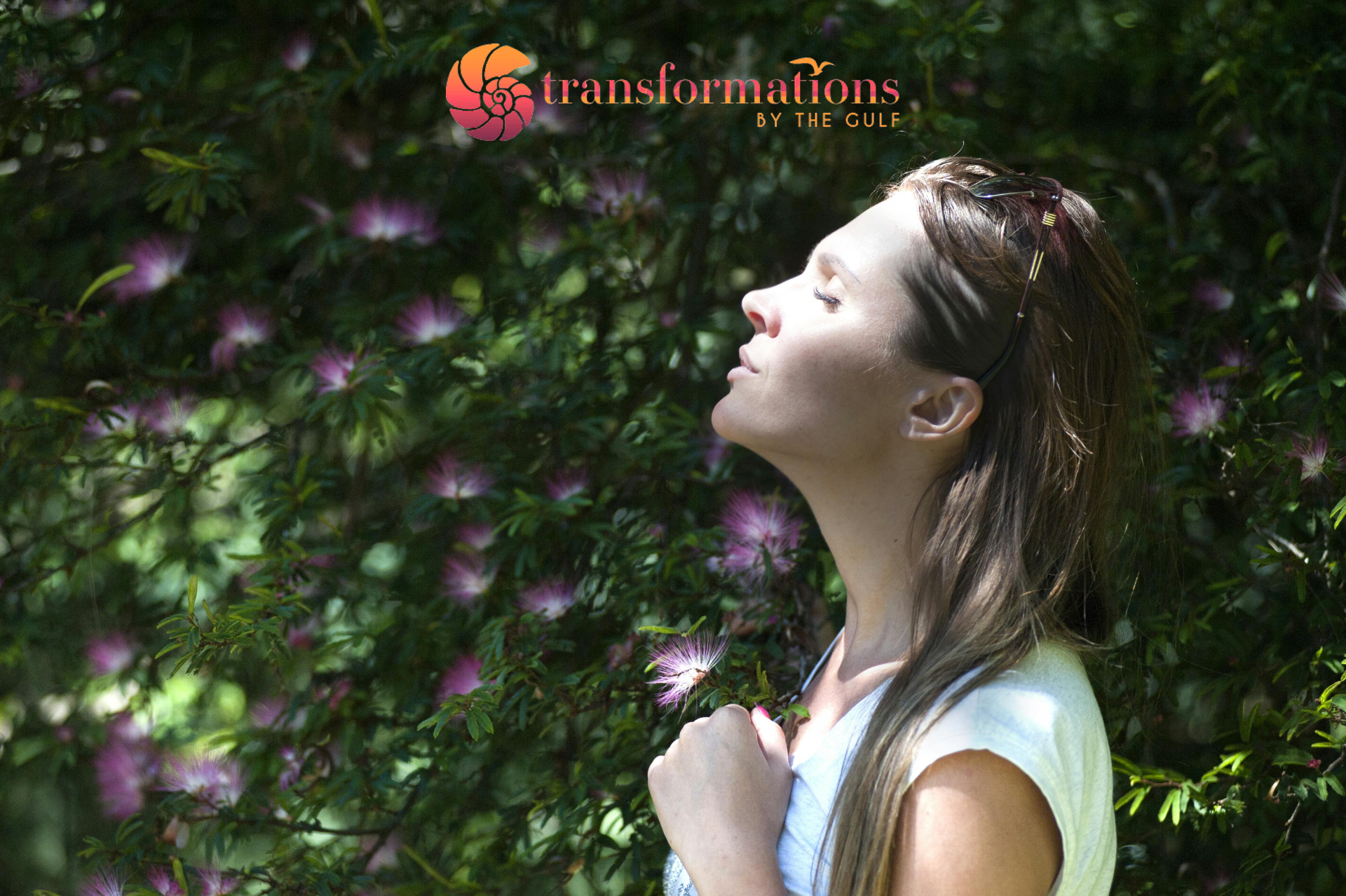Mindful Breathing to Reduce Stress
Mindful Breathing to Reduce Stress
Focusing on your breathing is one of the easiest yet most effective ways to alleviate stress. While numerous books delve into this topic, the suggestions below can serve as a helpful starting point for you. Given that breathing is a constant activity, you will have ample chances to hone this technique!
Less is More
The first and most crucial step in reducing stress is to breathe less through your nose while maintaining a regular breathing pattern. Initially, taking a deep breath or two can help you start practicing breath control. Focus on breathing regularly but at a slower pace with less air volume after these initial breaths. While you may not instantly decrease your breathing rate, with practice, it will likely decrease gradually over several breaths. Through consistent practice, you may achieve a breathing rate as slow as 6 breaths per minute (one every 10 seconds) and inhale less air in the process. Breathing in this manner can significantly reduce feelings of anxiety, making it less likely for you to feel anxious. For many individuals, this initial step leads to a noticeable and satisfactory decrease in anxiety levels.
Breathe Like a Baby
Many of us find it uncomfortable to push the diaphragm downward towards the pelvis, causing the abdomen to protrude. However, even a slight movement in this direction can greatly aid in mindful breathing. Learning this diaphragm movement can be difficult for some individuals. Techniques such as pushing against your waistband, lying down with a book on your abdomen as it rises and falls with each breath, or leaning forward while seated and focusing on diaphragmatic breathing can help with this process.
Take It Down
When practicing diaphragmatic breathing, concentrate on drawing your breath into your lower back, where the lungs reach further down. This emphasis will strengthen your diaphragmatic breathing and reduce the reliance on your chest.
Stop Breathing
Many people are accustomed to the typical breathing pattern of inhaling and exhaling. However, you may benefit from integrating a brief pause between breaths, as in the 4-square breathing technique. With this method, you inhale, pause, exhale, pause, allocating 4 to 5 seconds for each phase. One advantage of incorporating a pause between breaths is the opportunity for complete relaxation, as you do not need to hold your breath during the subsequent pause. When practicing this technique while lying down, you can achieve total relaxation of all voluntary muscles during the pause. Over time, with consistent practice, the duration of the pause can extend to several seconds, resulting in a reduction of breathing frequency to just a few breaths per minute or even less. For inspiration, consider exploring the abilities of experienced breath practitioners such as yogis or deep-sea divers who have honed the art of mindful breathing.
Breaking it Down
Breathe less air through your nose, take slower breaths, focus on using your diaphragm instead of your chest, draw your breath down to your lower back, and pause briefly after each exhale. This video effectively showcases these practices.
Breaking it Down
Even if you have mastered the mindful breathing techniques, they will not be effective unless implemented. Consider setting alarms on your phone as a reminder to practice breathing exercises. Connect your breathing routine to various activities such as reaching for your phone, transitioning between tasks throughout the day, or during moments of pause in between activities (e.g. logging in, waiting at a stoplight, or waiting for someone to answer the phone). Making small adjustments to your stress levels throughout the day can contribute to improved well-being by day's end, reducing the urge to seek alternative methods for relaxation.
Instead of solely dwelling on self-criticism, consider the circumstances surrounding your actions. Given the same scenario, personal background, and triggers, would another person have made a similar choice? Reflect on what insights you gain about yourself. Avoid black-and-white thinking. A decision that wasn't optimal likely wasn't entirely flawed. Embracing decisions, facing outcomes, and evolving through this journey shapes our growth into responsible adults. If you or someone you know is struggling with an addiction to drugs or alcohol, call us today at (727)498-6498.
Are you struggling with addiction and want to learn more? Visit Psychology Today or check out our page on addiction treatments.
Coping with Regret in Recovery
Coping with Regret in Recovery
Regret is the feeling that arises when we believe we could have made better choices or actions. It is common to question ourselves with phrases like "why did I...?" or "why didn't I...?" Given that making mistakes is inevitable, it is likely that we will experience regret frequently. Research indicates that approximately 1/3 of our decisions may lead to feelings of regret. Instead of striving to evade regret, it is advisable to focus on managing and processing regret.
Two Types of Regret
There appear to be two primary forms of regret. One might regret failing to fulfill obligations to others. Upon recognizing the issue, it could be relatively simple to rectify one's actions or seek reconciliation. Conversely, do you exert a comparable effort when you falter in pursuing your aspirations and objectives? Lingering regret is often a result of neglecting to chase after your dreams and goals, rather than falling short on your duties. Over time, we typically regret more the things we neglected to do, rather than the actions we took.
How to Cope with Regret Now?
Can we utilize it effectively instead of getting lost in regret, guilt, and shame? Consider the following suggestions: Embrace regret instead of avoiding it. Embracing it can provide a chance for growth. Instead of dwelling on "if only," can you adopt a mindset of "this time" or "next time"? Many regrettable decisions or choices may recur in the future.
Instead of solely dwelling on self-criticism, consider the circumstances surrounding your actions. Given the same scenario, personal background, and triggers, would another person have made a similar choice? Reflect on what insights you gain about yourself. Avoid black-and-white thinking. A decision that wasn't optimal likely wasn't entirely flawed. Embracing decisions, facing outcomes, and evolving through this journey shapes our growth into responsible adults. If you or someone you know is struggling with an addiction to drugs or alcohol, call us today at (727)498-6498.
Are you struggling with addiction and want to learn more? Visit Psychology Today or check out our page on addiction treatments.
Nurses Struggling with Substance Abuse
Nurses Struggling with Substance Abuse
Nurses often experience high levels of stress, work long hours, and must make critical decisions that can impact lives. It is common for many nurses to express dissatisfaction and a feeling of being undervalued in the workplace, which can hinder their job performance. The easy availability of powerful prescription medications presents a risky temptation for nurses, increasing the likelihood of substance abuse and potentially jeopardizing the safety and health of their patients.
THE PREVALENCE OF NURSE SUBSTANCE ABUSE
Nurses, like numerous other professionals, are vulnerable to stress and burnout, leading to potential substance misuse. Their responsibilities are strenuous, frequently involving extended shifts and managing critical, high-stress scenarios. Certain nurses who experience substance abuse concerns may begin to explore alcohol and drugs during their nursing education. The demanding workload and extended hours further contribute to the challenges of the nursing profession. Faced with emotional strain and physical fatigue, many nurses turn to drugs as a misguided method of self-treatment.
THE IMPACT OF NURSES UNDER THE INFLUENCE
Compassion fatigue occurs when a nurse becomes deeply involved in their patients' pain and neglects their self-care. This issue can lead to some nurses developing harmful coping mechanisms, such as alcohol and drug use. Substance abuse presents significant and unique challenges in the nursing field. Nurses who use drugs while on duty are less likely to deliver safe and competent care, putting the individuals under their care at risk. A nurse grappling with a drug problem may inadvertently harm their patients or jeopardize their well-being. A specific challenge is drug diversion, where nurses misuse medications meant for their patients. This illicit behavior not only jeopardizes the health of nurses but also deprives patients of essential drugs needed for recovery.
HIGH-FUNCTIONING ADDICTION: UNMASKING THE MYTH
When envisioning individuals facing substance abuse challenges, the common image is of someone whose life appears visibly chaotic. However, this perception is misleading. Many people struggling with addiction are able to uphold a facade of normality, maintaining demanding professions such as nursing while fulfilling their work responsibilities – a phenomenon often described as "high-functioning" addiction. Regrettably, this notion is a risky misconception. Even if a nurse appears to have everything in order outwardly, they are still grappling with a severe, life-threatening issue behind closed doors. Nurses are particularly vulnerable to the physical, psychological, and social consequences of substance abuse. The apparent sense of normality can impede the identification of the problem and discourage nurses from seeking the necessary assistance.
RECOGNIZING AND ADDRESSING NURSE SUBSTANCE ABUSE
Recognizing and intervening promptly is essential to protect patients and support nurses in their path to recovery. Creating a workplace environment that encourages nurses to seek assistance for their challenges without worrying about stigma or repercussions is vital. Addiction can have a negative impact on your self-esteem, but there are numerous healthy methods to boost your confidence and lead a happier, healthier life. Whether it's forgiving yourself for past mistakes or consistently prioritizing self-care, these simple yet effective strategies can aid you on your path to recovery. Transformations by the Gulf provides top-notch addiction treatment services in the Gulf Coast of Florida, catering to a wide range of substance use disorders. We offer tailored care to best support your recovery journey, ensuring you receive the assistance you need without fear or shame. Reach out today to discover how we can assist you in your recovery. If you or someone you know is struggling with an addiction to drugs or alcohol, call us today at (727)498-6498.
Are you struggling with addiction and want to learn more? Visit Psychology Today or check out our page on addiction treatments.
What is Polysubstance Abuse?
What Is Polysubstance Abuse?
Polysubstance abuse involves using three or more drugs to achieve a high. Combining substances is extremely risky and should be avoided. If you mix multiple drugs, a substance abuse treatment program can aid in controlling your emotions without relying on substances. Transformations by the Gulf provides various treatment options for those with polysubstance use disorder. Contact (727)498-6498 to begin your journey to sobriety.
How Are Users Identified as Polysubstance Users?
A polysubstance user engages in the concurrent use of at least three different types of drugs or combines two drugs with alcohol. Within one year of initiating use, an individual must exhibit a minimum of three of the symptoms listed below:
High Tolerance
Often, users will need greater doses to feel the influence of the drugs they are using. This will cause them to use more of the drug than they first began using:
Participating in Self-Harm
Abusing multiple drugs is extremely dangerous. If someone experiences harm due to drug abuse and does not seem to care, this indicates a greater problem.
Avoiding Withdrawal Symptoms
When individuals cease drug usage, they frequently undergo painful withdrawal symptoms. Users of multiple substances may consume drugs to avoid experiencing these symptoms. Increased drug consumption suggests a serious addiction. The significant amount of time spent obtaining and using drugs hinders their ability to maintain control over their lives, rendering them incapable of being accountable for themselves or others.
- Inpatient detox
- Residential rehab
- Sober living
No matter how hopeless you feel, we want you to know that recovery is possible. A supportive sober network can make a colossal difference in a person’s addiction recovery journey.
Why Do People Combine Substances?
Substance use disorders frequently stem from individuals seeking to manage their emotions. Excessive drug abuse can signal underlying severe depression or anxiety, where individuals seek increased relaxation or energy. The subsequent addiction treatment programs can aid in fostering recovery:
What Are the Dangers of Polysubstance Abuse?
Substance use disorder poses significant risks as users become more reckless, particularly when under the influence. Following a high, individuals are more inclined to engage in risky behavior to obtain and consume their preferred drug. Polysubstance users face even greater dangers. The following are some of the hazards associated with polysubstance abuse:
Severe Side Effects
When someone combines various drugs, each substance’s reaction will be different. In addition, documented side effects include vomiting, lack of coordination, fluctuating heart rate, high blood pressure, trouble breathing, and recurrent body pain.
Mental Health Challenges
If a polysubstance user is also affected by mental health issues, it can often have a negative impact on the disorder.
Overdose
Using multiple drugs increases the risk of overdose significantly. This occurs because some substances can hide the effects of others when mixed, leading individuals to consume a larger amount to achieve a desired sensation. Consequently, this can result in an overdose, which can be challenging to manage. For instance, an opiate overdose necessitates naloxone for reversal, whereas different stimulants require alternative interventions. Overdoses frequently result in fatalities, necessitating specialized care in cases of polysubstance use.
Addiction can have a negative impact on your self-esteem, but there are numerous healthy methods to boost your confidence and lead a happier, healthier life. Whether it's forgiving yourself for past mistakes or consistently prioritizing self-care, these simple yet effective strategies can aid you on your path to recovery. Transformations by the Gulf provides top-notch addiction treatment services in the Gulf Coast of Florida, catering to a wide range of substance use disorders. We offer tailored care to best support your recovery journey, ensuring you receive the assistance you need without fear or shame. Reach out today to discover how we can assist you in your recovery. If you or someone you know is struggling with an addiction to drugs or alcohol, call us today at (727)498-6498.
Are you struggling with addiction and want to learn more? Visit Psychology Today or check out our page on addiction treatments.
Self-Esteem and Confidence in Recovery
Self-Esteem and Confidence in Recovery
How to Build Self-Esteem and Confidence in Recovery
Rebuilding your self-esteem and confidence is crucial during your addiction recovery process. Here are some methods to help you develop a strong sense of self-worth and belief in recovery.
- Make Healthy Changes - Start by regularly incorporating healthy adjustments and new routines into your daily life. Whether it's enhancing your eating habits or increasing your physical activity, these positive changes not only support your journey to healing, but also enhance your self-worth and assurance. This is because adopting healthy modifications and maintaining them fosters a strong sense of dedication and direction in your life.
- Forgive Yourself & Others - Recovering individuals may experience shame and embarrassment regarding their addiction, but it is important not to harbor these negative emotions. Holding onto these feelings can impede your recovery and diminish your self-esteem and confidence. It is crucial to forgive yourself for past actions and allow yourself to move forward towards a healthier, happier future. Additionally, forgiving those who may have caused harm or influenced your substance abuse is essential for positive progression in your recovery journey.
- Set Goals - Setting goals is crucial for enhancing self-esteem and confidence during the recovery process. Goals provide direction and motivation, enabling individuals to surpass their own expectations and reach their full potential. When establishing goals for recovery, it is important to make them specific and attainable, rather than vague. For instance, a specific goal could involve attending weekly support group meetings, instead of a general goal of wanting to stop drug abuse.
- Practice Self Care - Self-care plays a vital role in boosting confidence during the recovery process. It involves treating yourself with kindness and love through activities that bring you happiness and fulfillment. Self-care activities range from physical exercises such as working out or practicing yoga to mental activities like journaling or reading.
- Practice Positive Self Talk - Positive self-talk is essential for enhancing self-confidence and advancing on your journey to recovery. Negative thoughts can diminish self-esteem and heighten the likelihood of relapse. Acknowledge your self-talk and replace negative thoughts with affirming ones to promote self-appreciation and gratitude.
Addiction can have a negative impact on your self-esteem, but there are numerous healthy methods to boost your confidence and lead a happier, healthier life. Whether it's forgiving yourself for past mistakes or consistently prioritizing self-care, these simple yet effective strategies can aid you on your path to recovery. Transformations by the Gulf provides top-notch addiction treatment services in the Gulf Coast of Florida, catering to a wide range of substance use disorders. We offer tailored care to best support your recovery journey, ensuring you receive the assistance you need without fear or shame. Reach out today to discover how we can assist you in your recovery. If you or someone you know is struggling with an addiction to drugs or alcohol, call us today at (727)498-6498.
Are you struggling with addiction and want to learn more? Visit Psychology Today or check out our page on addiction treatments.
10 Self-Care Ideas for Recovery
10 Self-Care Ideas for Recovery
10 Self-Care Ideas to Improve Mental Health
Engaging in self-care practices to improve physical and mental well-being can begin at any time and there are numerous cost-free methods available. Some individuals create a self-care routine at the start of a new year in January, while others are prompted to prioritize self-care during Self Care Awareness Month in September. It is common for people to wrongly perceive self-care as selfish, when in reality, it is a way to boost energy levels and enhance our ability to assist others.
Numerous methods are available to engage in self-care practices for anxiety, recharge the mind, and alleviate stress. Here are Self-Care Ideas for Addiction Recovery:
- Do Yoga or Tai Chi.
- Avoid watching the news for a week.
- Take a relaxing bubble bath.
- Plant a garden.
- Listen to music.
- Go for a walk.
- Get a massage.
- Learn a new hobby.
- Go to a movie by yourself.
- Spend time alone at-home with a pet to help boost oxytocin.
10 Self-Care Ideas for Recovery can help you. If you or someone you love is struggling with addiction or mental illness, we can help. At Transformations by the Gulf, we offer a safe and nurturing space to navigate negative emotions and practice coping skills that will support you in your recovery journey. If you or someone you know is struggling with an addiction to drugs or alcohol, call us today at (727)498-6498.
Are you struggling with addiction and want to learn more? Visit Yelp to read our reviews or check out our page on addiction treatments.
Self-Care Tips for Addiction Recovery
Self-Care Tips for Addiction Recovery
5 Self Care Tips to Boost the Way We Feel
At the beginning of a new year or during Self-Care Awareness Month, consider making small adjustments in your daily routine to prioritize self-care. Professional assistance or drastic schedule changes are not always necessary. By incorporating these simple self-care practices into our daily habits, we can enhance our lives. Self-Care Tips for Addiction Recovery:
1. Restful and Regular Sleep
Skipping sleep is common, but adults typically require 6 to 9 hours of restful sleep each night for optimal brain function. Maintaining a consistent sleep schedule, including weekends, can assist in establishing this routine. While initially challenging, the body will adjust, leading to improved mood and energy levels with regular, quality sleep.
2. Exercise
Engaging in as little as 30 minutes of exercise each day can have a significant impact on reducing stress and anxiety, managing weight, and enhancing sleep and mood. Incorporating regular physical activity into your daily routine is also advised for alleviating various symptoms of depression. For some individuals, this may involve a 20-to-30-minute walk, while others may prefer activities such as cycling, swimming, hiking, or participating in sports. The key is to find an enjoyable and effective activity that encourages movement. If exercise feels like a burden or lacks enjoyment, individuals are likely to discontinue it, missing out on its health benefits. Spending time outdoors and engaging in physical activities amidst nature can further elevate mood, owing to the positive effects of sunlight. This also serves as an effective means of releasing endorphins to combat stress.
3. Well-balanced and Healthy Diet
Eating a balanced diet with plenty of fresh fruits, vegetables, and lean proteins can significantly improve sleep quality and provide the right energy for physical activity. A healthy diet can also positively impact mood and mental health by stabilizing blood sugar levels and reducing fluctuations. While it may be difficult initially, cutting out alcohol, unhealthy snacks, and processed foods can lead to improved overall health and well-being.
4. Social Support
Discover ways to connect with family and friends who share your interests to establish a robust social support network. Simply staying connected through social media is insufficient. While everyone's social needs differ, spending quality in-person time with others can help us stay grounded and more connected to ourselves. In addition to friends and family, consider volunteering to assist others in any capacity, which can be highly fulfilling and result in lasting friendships.
5. Meditation and Mindfulness
Engaging in meditation and mindfulness offers an effective method to calm the mind and alleviate stress, anxiety, and depression. Mindfulness entails being present and attentive to the current moment. For instance, during a stroll, it involves noticing the sensation of the air on our skin and the feeling of the ground beneath our feet. In a brief meditation session, maintaining mindfulness includes concentrating on our breath, the movement of our chest, and allowing thoughts to pass through the mind without fixation. As per the Mayo Clinic, dedicating just 5 to 15 minutes to meditation can diminish stress and serve as a valuable self-care practice.
If you or someone you love is struggling with addiction or mental illness, we can help. At Transformations by the Gulf, we offer a safe and nurturing space to navigate negative emotions and practice coping skills that will support you in your recovery journey. If you or someone you know is struggling with an addiction to drugs or alcohol, call us today at (727)498-6498.
Are you struggling with addiction and want to learn more? Visit Psychology Today or check out or page on addiction treatments.
Self-Care Ideas for Addiction Recovery
Self-Care Ideas for Addiction Recovery
Engaging in self-care activities and techniques to improve physical and mental wellness is something that can be initiated at any time, and there are numerous cost-free methods available. Some individuals set up a regimen at the start of a new year in January, while others are prompted to consider its significance during Self Care Awareness Month in September. Unfortunately, many individuals mistakenly perceive self-care as selfish. In reality, it is the opposite. By prioritizing self-care, we can boost our energy levels and become even more effective in supporting others.
What is Self-Care?
In summary, self-care involves promoting physical and mental well-being as well as managing our emotional reactions to life's stressors. Getting sufficient sleep, staying hydrated, and taking time to unwind are simple ways to boost our energy levels both physically and emotionally. Initially, prioritizing and establishing healthy habits in these areas requires conscious effort. Over time, these self-care practices can become ingrained habits that contribute to improved overall health and mental well-being. Nevertheless, challenging moments in life will still arise. Nevertheless, having a solid self-care routine in place can lead to more effective, productive, and enduring responses to life's difficulties. Developing effective self-care strategies is more achievable than many people think. Letting go of the notion that self-care is a luxury rather than an essential component of good health may be the most challenging aspect of adopting these practices. Self-Care Ideas for Addiction Recovery is imporant.
3 Types of Self-Care Ideas
When thinking about self-care, people often imagine luxurious spa days or exotic getaways. However, it involves more than just relaxing or unplugging. Some people begin their day with positive affirmations, while others journal before bed. Ultimately, self-care entails dedicating time to activities that enhance your well-being and focusing on your personal needs, even if just for a few minutes each day. It is a proactive approach to health in three crucial areas of life.
1. Physical Self-Care Tips
Prioritizing our physical health is paramount as it impacts all aspects of our daily lives. According to the U.S. Department of Health and Human Services and the Office of Disease Prevention and Health Promotion, physical health is closely linked to mental well-being. In addition to contributing to illness and disease, poor physical health can trigger depression, anxiety, and chronic stress, which can disrupt our personal and professional lives, strain our relationships, and perpetuate a cycle of unwellness. While exercise, diet, and sleep are crucial for maintaining good health, physical self-care also encompasses:
- Seeing a health care provider regularly.
- Taking prescribed medications, if necessary, especially for older adults.
- Managing any risk factors that may lead to poor mental and physical health conditions.
2. Mental and Emotional Self-Care
Many people overlook the importance of actively caring for their mental and emotional well-being. However, it's crucial to recognize that our thoughts, perspectives, and psychological health are influenced by our focus. It's common to fall into negative thought patterns, fixating on past mistakes and regrets. This dwelling on negativity elevates stress levels, altering brain chemistry and potentially leading to various anxiety disorders. Practicing self-forgiveness and self-love is integral to emotional and mental self-care. While it may not be effortless, showing ourselves compassion is immensely important. As humans, releasing our mistakes and regrets can alleviate much of the fear and worry that we grapple with daily.
3. Social and Spiritual Self-Care
Some may find this type of self-care unconventional, but social and spiritual self-care can exist independently of religious practices. Examples of spiritual wellness include engaging in activities we are passionate about, such as feeling connected to nature and having a sense of something greater than ourselves. Engaging in this kind of self-care also happens during social interactions with friends and family. Maintaining close personal connections with others is crucial for mental well-being. Allocating time for others and nurturing our interests may be demanding, but dedicating even a small amount of time to social and spiritual self-care can be very rewarding.
If you or someone you love is struggling with addiction or mental illness, we can help. At Transformations by the Gulf, we offer a safe and nurturing space to navigate negative emotions and practice coping skills that will support you in your recovery journey. If you or someone you know is struggling with an addiction to drugs or alcohol, call us today at (727)498-6498.
Are you struggling with addiction and want to learn more? Visit Psychology Today or check out or page on addiction treatments.
Coping with Boredom in Recovery
Boredom is typically seen as something negative, but it does have its benefits. When there's not much happening around you, you can take the opportunity to think about the bigger picture of your life. It's easy to lose sight of what really matters beyond daily concerns. When you're bored, you can take a moment to reflect on what's truly important, rather than just what's urgent or immediate.
Feeling bored can lead to reflecting on the bigger picture of life when there are no immediate pressures. On the other hand, if you tend to avoid contemplating your life, you might actively try to ward off boredom to prevent such thoughts from arising. This could be a result of a hectic lifestyle or possibly struggling with addictive behaviors.
If you lack the energy to contemplate your life and often feel indifferent or worn out, it may be time to focus on improving your physical health or addressing any underlying depression.
Boredom can occur after finishing a significant task. Instead of viewing this boredom as a negative, you can see it as a transitional period. Similarly, after completing a challenging workout, your body requires time to transition back to a normal activity level.
Boredom can occur when you're stuck in an activity you don't want to do but have to keep at, like a dull meeting. It can be hard to think about the bigger picture of your life in these moments. However, there are ways to multitask or take control of the situation, and even avoid it in the future. Boredom is a common part of life, and learning to accept it and use it as a prompt for productive activities can help it fit naturally into your life.
If you or someone you love is struggling with addiction or mental illness, we can help. At Transformations by the Gulf, we offer a safe and nurturing space to navigate negative emotions and practice coping skills that will support you in your recovery journey. If you or someone you know is struggling with an addiction to drugs or alcohol, call us today at (727)498-6498.
Are you struggling with addiction and want to learn more? Visit Psychology Today or check out or page on addiction treatments.
Ways to Handle a Drug or Alcohol Craving
Ways to Handle a Drug or Alcohol Craving
Managing cravings is a significant challenge during the recovery process. The intense urges can feel overwhelming and sudden. However, it's important to remember that cravings can be managed. Developing effective strategies for handling cravings is crucial for a successful recovery. Below are some tactics for addressing cravings as they occur.
Accept It
When a craving arises, the first step is to acknowledge that cravings are common and unavoidable. Every individual in strong recovery has encountered cravings and likely continues to do so occasionally. Experiencing a craving does not indicate wrongdoing, failure, or an inevitable relapse; it is simply a regular part of the process. After being accustomed to using an addictive substance daily, possibly for an extended period, it is expected to feel the temptation to use it again occasionally. However, attempting to suppress or dismiss the urge will only intensify it. Embrace the fact that you are facing a craving and avoid feeling guilty about it but seek ways to address it.
Distract Yourself
Cravings are temporary and usually fade very quickly unless you focus on them. To avoid dwelling on a craving, engage in activities that demand your full concentration, such as working, reading, playing a video game, taking a walk, chatting with friends, or any other absorbing task. By redirecting your attention, you can effectively overcome the craving without struggling to suppress it.
Run Away
If a craving persists, there may be a triggering situation keeping it alive, such as being in a place that serves alcohol, being with someone you used to drink with, or being around someone who stresses you out. Leaving the situation is often the best course of action. For example, if you're in the grocery store struggling to pass the liquor aisle, consider leaving. It's important to understand your triggers to avoid and recognize them. Even if you're unsure why the craving persists, a change of setting may help resolve the issue.
Examine Your Thinking
Our thoughts can often heighten cravings unnecessarily. When a craving arises, you might start thinking, "Oh no, a craving! This is terrible! I'll never resist it!" This only adds to the stress of the craving and intensifies it. Instead, acknowledge it, as mentioned earlier, and observe your thoughts. Remind yourself that cravings come and go, and you'll be okay in a few minutes. It's also possible that a craving has emerged in response to stress unrelated to substance use. Perhaps you're upset with someone or feeling overwhelmed at work. Notice your thoughts about these situations. Are you thinking that someone shouldn't have treated you a certain way? Are you making your work situation out to be worse than it is? Recognizing and challenging cognitive distortions can reduce your stress and lessen the intensity of cravings.
Get Some Exercise
Engaging in physical activity is a highly effective method for managing cravings. It serves as a powerful distraction, particularly when the activity involves skill or social interaction, such as participating in a team sport. Additionally, exercise diminishes anxiety, enhances mood, and notably, bolsters emotional control and willpower. These advantages prove particularly valuable when faced with cravings. Simply taking a walk in your local area can assist in dispelling a craving, as within 20 minutes, it can be entirely forgotten.
Practice Mindfulness
When you feel a craving, one method to manage it is by mindfully examining it. Usually, people perceive a craving as a directive emanating from a subconscious level. It's like an inner voice shouting "DRINK!" Automatically, you may either succumb to it or try to resist and dismiss it.
However, you can take a step back and observe the craving. What sensations does it provoke? Where in your body do you sense it? In your chest? Your stomach? Step back and analyze the sensation without making judgments or feeling obligated to act. Does it shift or evolve? As the sensation begins to diminish, release it. This becomes more effortless with daily mindfulness meditation practice. By regularly observing thoughts and sensations without becoming entangled in them, you'll discover it's simpler to endure even strong cravings.
Play The Tape
To combat cravings, consider employing the "play the tape" technique. When you experience cravings, your mind may distort reality, leading you to romanticize past substance use and entertain thoughts like "I've been clean for a while, one time won't hurt." To combat these temptations, mentally fast-forward and vividly envision the aftermath of giving in to the craving - the disappointment, family letdown, relapse, and restarting recovery. Revisit the reasons behind your sobriety to counter the allure of using again.
If you or someone you love is struggling with addiction or mental illness, we can help. At Transformations by the Gulf, we offer a safe and nurturing space to navigate negative emotions and practice coping skills that will support you in your recovery journey. If you or someone you know is struggling with an addiction to drugs or alcohol, call us today at (727)498-6498.
Are you struggling with addiction and want to learn more? Visit Psychology Today or check out or page on addiction treatments.

